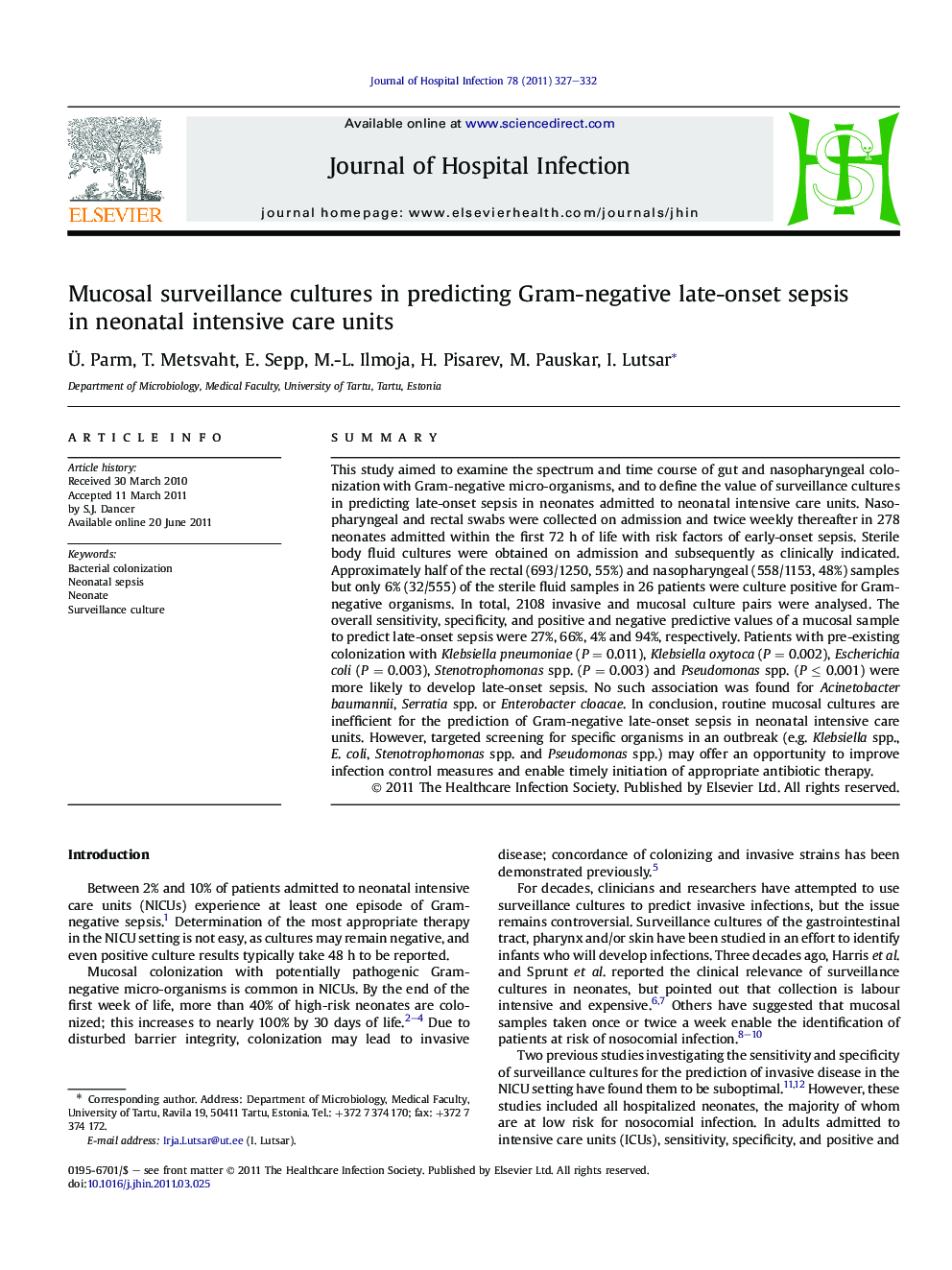| کد مقاله | کد نشریه | سال انتشار | مقاله انگلیسی | نسخه تمام متن |
|---|---|---|---|---|
| 3372156 | 1219247 | 2011 | 6 صفحه PDF | دانلود رایگان |

SummaryThis study aimed to examine the spectrum and time course of gut and nasopharyngeal colonization with Gram-negative micro-organisms, and to define the value of surveillance cultures in predicting late-onset sepsis in neonates admitted to neonatal intensive care units. Nasopharyngeal and rectal swabs were collected on admission and twice weekly thereafter in 278 neonates admitted within the first 72 h of life with risk factors of early-onset sepsis. Sterile body fluid cultures were obtained on admission and subsequently as clinically indicated. Approximately half of the rectal (693/1250, 55%) and nasopharyngeal (558/1153, 48%) samples but only 6% (32/555) of the sterile fluid samples in 26 patients were culture positive for Gram-negative organisms. In total, 2108 invasive and mucosal culture pairs were analysed. The overall sensitivity, specificity, and positive and negative predictive values of a mucosal sample to predict late-onset sepsis were 27%, 66%, 4% and 94%, respectively. Patients with pre-existing colonization with Klebsiella pneumoniae (P = 0.011), Klebsiella oxytoca (P = 0.002), Escherichia coli (P = 0.003), Stenotrophomonas spp. (P = 0.003) and Pseudomonas spp. (P ≤ 0.001) were more likely to develop late-onset sepsis. No such association was found for Acinetobacter baumannii, Serratia spp. or Enterobacter cloacae. In conclusion, routine mucosal cultures are inefficient for the prediction of Gram-negative late-onset sepsis in neonatal intensive care units. However, targeted screening for specific organisms in an outbreak (e.g. Klebsiella spp., E. coli, Stenotrophomonas spp. and Pseudomonas spp.) may offer an opportunity to improve infection control measures and enable timely initiation of appropriate antibiotic therapy.
Journal: Journal of Hospital Infection - Volume 78, Issue 4, August 2011, Pages 327–332